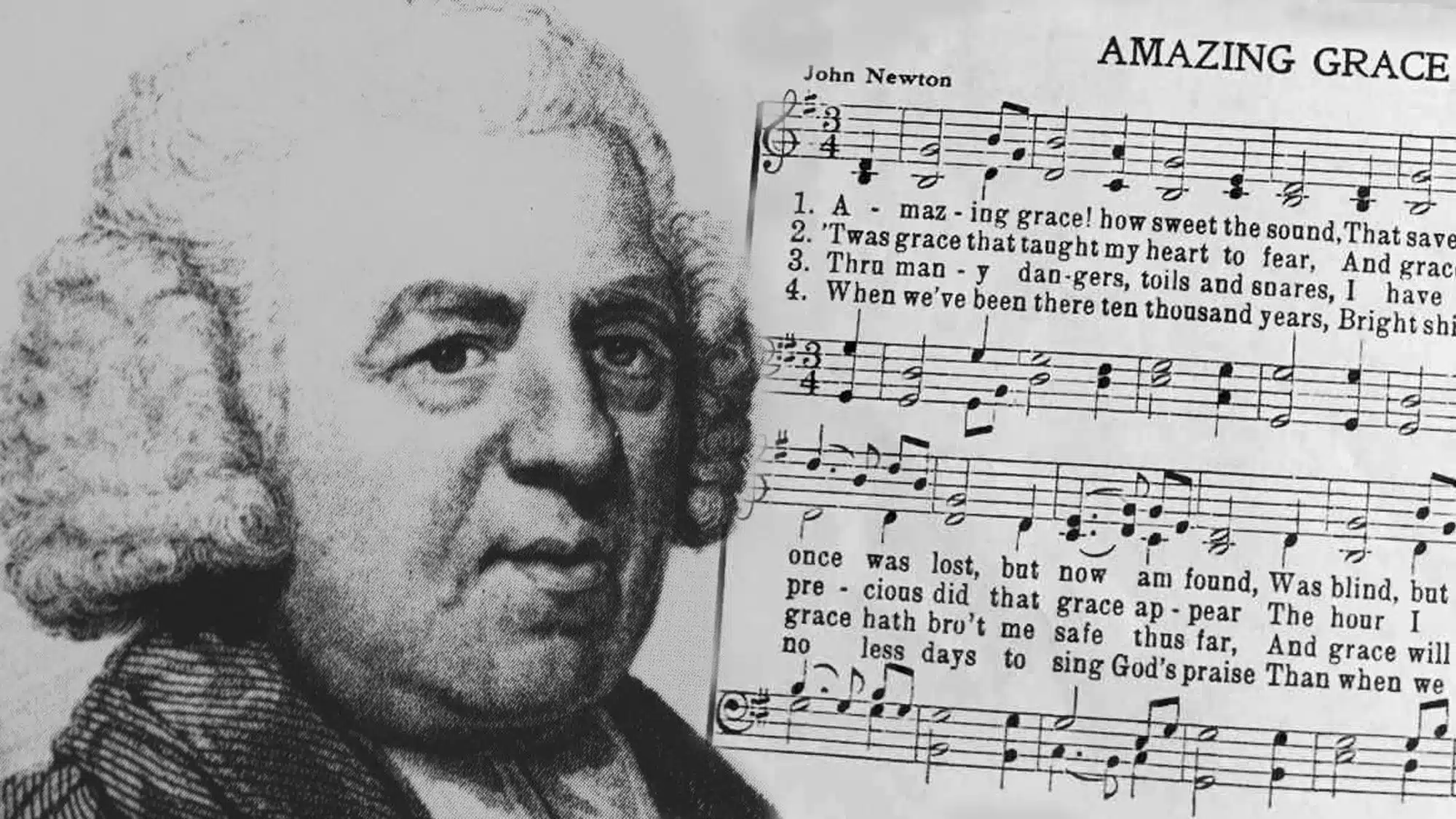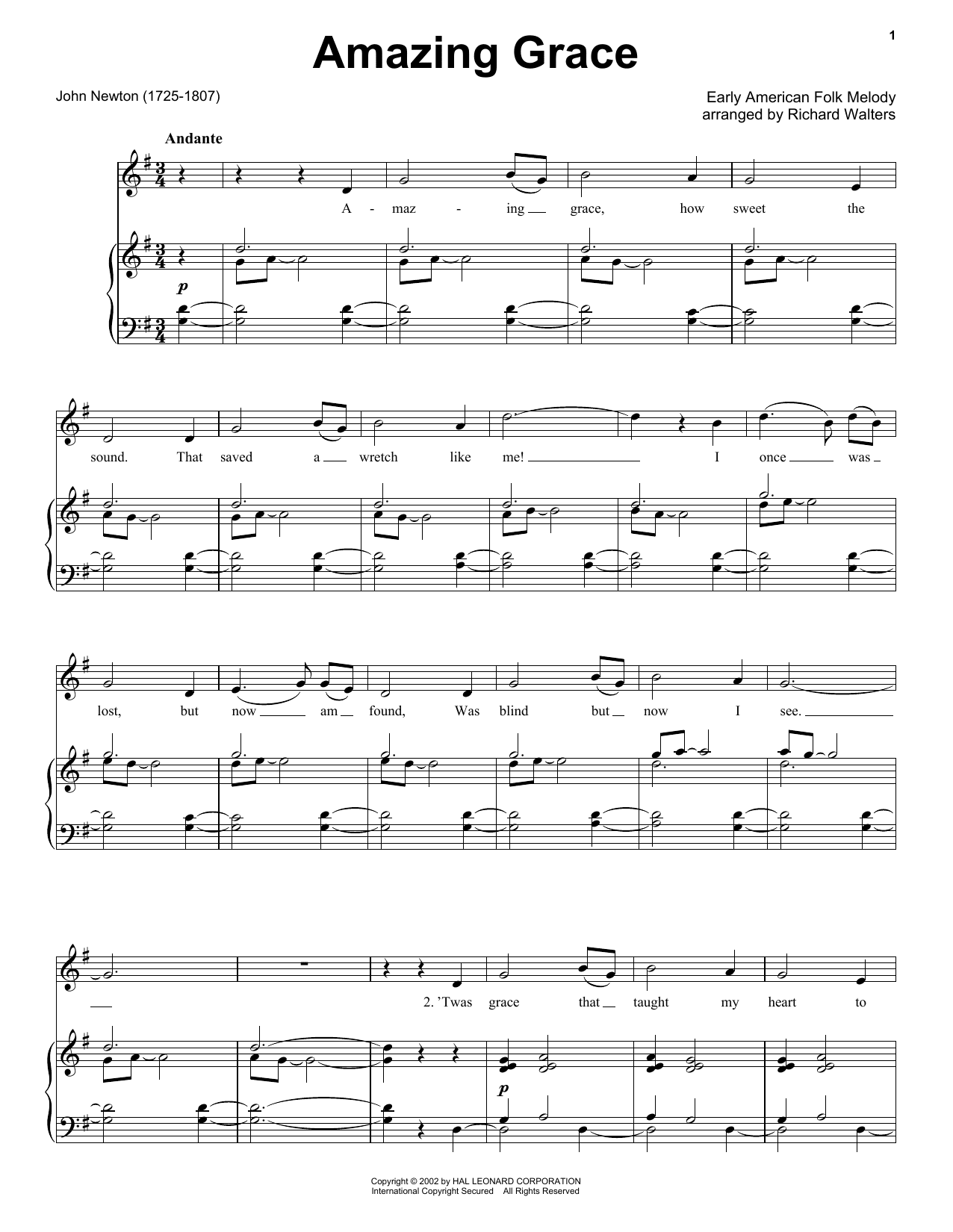“Amazing Grace” is a popular Christian hymn that has been around for centuries. The lyrics to the song were written by John Newton, a former slave trader who had a dramatic conversion to Christianity.
Newton was born in 1725 in Gloucestershire, England. When he was a boy, his mother died and his father abandoned the family. John had to take on many responsibilities when he was younger. As a result, he turned to business and took over the family business of slave trading. He also married at a young age and had several children, but his wife died after giving birth to their first child. Newton sold many people into slavery throughout his life, including fellow countrymen and family members. One time he even sold himself into slavery as a slave-trader to recoup some of his debt. After his conversion, he founded the West African Methodist Episcopal Church and wrote hymns that conveyed his new found faith.
The song is about God’s redeeming grace and mercy, and how we can find forgiveness for our sins. “Amazing Grace” has been recorded by many artists over the years, and it remains one of the most popular hymns today. 6. “How Great Thou Art” – This hymn is based on the ancient Greek text of Psalm 68, which says, “Thou didst hide these things from the wise and prudent, and revealed them to the lowly.” When the first Baptist churches were being established in America, they chose this psalm as their official worship song because it spoke directly to their situation. Since its publication in 1910, this hymn has become a favorite among those who attend churches where the gospel is preached.
Several artists have recorded their own versions of “Amazing Grace” over the years.
The text of “Amazing Grace” is attributed to John Newton, a British sea captain and slave trader who spent time in London’s Newgate Prison for his alleged involvement in the slave trade. Newton published his poem titled “Amazing Grace” In 1779. The hymn has since been recorded by many artists and remains one of the most popular and well-known hymns today.
The Origins of the Amazing Grace Song
The Amazing Grace song is a hymn that has been around for centuries. The song was originally titled “New Britain”, but was later changed to “Amazing Grace” after its popularity increased. Newton had first written the song in his home as a prayer for freedom from sin.
He had also written the poem “Epitaph on the Death of a Slave” in 1782, which expressed his remorse for his past.

The “Epitaph” poem was published in a book of collected works. Newton had originally intended the poem to be sung to simple chords, but it was printed with words instead. The publisher of the book then had the idea to put the two together and create a hymn. The words were set to a simple version of the “Cambridge Contemplation” music that Newton himself had composed. This was the first time that the two pieces had been put together and printed.
The original version of the song was published in 1789 in “Hymns and Sacred Poems”. The song was later recorded by many famous artists including:
• James C. Jones, The Cleveland Quartet, and Mary Margaret O’Hara.
• Stan Kweller.
• Gospel Music Association National Quartet.
• The King’s Singers.
• English Chamber Choir. • The London Handel Orchestra.
• Voice of the Valley Church of Idaho.
The song was also made popular by Ralph Stanley who recorded it in the mid-1960s and Elvis Presley who recorded it in the late 1960s, releasing it on his 1969 album “From Elvis.”
Download Sheet Music
Amazing Grace by Magnificant Il Divo
The Meaning Behind the Amazing Grace Song
The lyrics of the song are based on Newton’s own experience of coming to faith in Jesus Christ. The song has been recorded by many artists and has been featured in various movies and television shows. The song Amazing Grace is a very popular Christian hymn that was written by English poet and clergyman John Newton. The lyrics of the song are based on Newton’s own experience of coming to faith in Jesus Christ. The song has been recorded by many artists and has been featured in various movies and television shows. The amazing grace of God.
The authorship of the Amazing Grace is commonly attributed to John Newton, a slave trader from Bristol, England. Newton wrote the lyrics in 1779, in a letter to a fellow trader. The subject of the letter was how he could faithfully bring the gospel to people who were involved in the slave trade. The letter was meant to explain how he could reconcile his faith with the slave trade.
The lyrics of Amazing Grace have been translated into many languages. The song has been translated into 38 languages so far.
The story behind the song “Amazing Grace” is deeply rooted in the life transformation of its author, John Newton, a former slave trader who became a clergyman in the Church of England. Here are some of the most frequently asked questions about “Amazing Grace” and their answers based on the content from Premier Christianity:
FAQs About Amazing Grace
Who wrote “Amazing Grace” and what inspired it?
What is the significance of the lyrics?
How did “Amazing Grace” become so popular?
Was the final verse of “Amazing Grace” written by John Newton?
How has “Amazing Grace” impacted society?
“Amazing Grace” continues to be a source of inspiration and reflection on the themes of grace, redemption, and the capacity for personal transformation.

